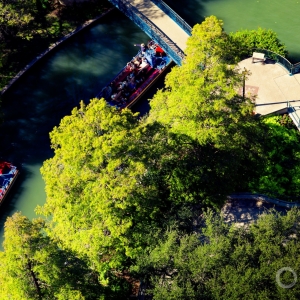The Stream, October 29, 2019: South Africa Imposes Emergency Water Rations as Dam Levels Dip
The Global Rundown
South Africa imposes emergency water restrictions following an unusually dry summer. Officials in Turkana, Kenya, explore the possibility of a desalination plant with a Saudi investor. Lawmakers in Australia question the equality of funding given to drought-hit communities. Advocates and residents praise new flood-disclosure requirements for home sellers in Texas. Several large fires blaze in California.
“Indications are that are our rainfall patterns are getting harder to predict. What we’re seeing, like other parts of the globe, is the dry season is getting longer, harsher and more intense. Climate change is a reality and is affecting South Africa.” –Lindiwe Sisulu, Minister of Human Settlements, Water and Sanitation, in reference to falling dam levels in the country. Reservoirs across South Africa have fallen by 10 to 60 percent compared to this time last year, prompting the government to enact emergency water restrictions. Reuters
Latest WaterNews from Circle of Blue
Election 2019: State and Local Voters Face Water Infrastructure Funding Decisions — Ballot initiatives in Colorado, Texas, New Orleans, and Portland address flooding, financing, and watershed protection.
What’s Up With Water – October 28, 2019 — This week’s edition of What’s Up With Water includes coverage on water shutoffs in the Philippines, dwindling water supplies in Australia, and proposed legislation addressing algae blooms in Florida.
HotSpots H2O: Fuel Shortages Slash Water Supply for 15 Million in Yemen — A fuel crisis in Yemen is severely straining water supplies for 15 million people, according to reports from Oxfam and other aid agencies.
By The Numbers
$48-$97 million Cost of a potential desalination plant in Kenya’s parched Turkana region. Officials are negotiating a partnership with the Saudi-owned Almar Water, and say an agreement is likely to be reached within a few months. The Guardian
$2.5 million Total drought funding received by several small Australian city councils through the country’s drought communities program. Four of the councils that have received $2.5 million had a population of less than 350 people. Some lawmakers are now questioning the equity of the grants, as the same amount has been received by councils with up to 160,000 residents. The Guardian
In context: In Australia, Echoes of Past, Glimpses of Future As Country Braces for Hot, Dry Summer.
Science, Studies, and Reports
As of September, home sellers in Texas are now required to answer eleven questions related to the flood risk and flood history of a house. The increased disclosure was spurred by 2017’s Hurricane Harvey, which flooded thousands of homes in the Houston area. A recent poll by the Pew Charitable Trusts found that 74 percent of U.S. residents support a national standard for providing home buyers with a property’s flood history. NPR
On the Radar
Several large fires are blazing in California, including the Tick fire in Santa Clarita, the Kincade fire in Sonoma County, and the Getty fire on the west side of Los Angeles. Several homes have been destroyed and thousands of structures are under mandatory evacuation orders as firefighters rush to contain the flames. Los Angeles Times
In context: Severe Drinking Water Contamination Surfaces After Brutal Camp Fire.
Kayla Ritter is a recent graduate of Michigan State University, where she studied International Relations and Teaching English to Speakers of Other Languages. She is currently based in Manton, Michigan. Kayla enjoys running, writing, and traveling. Contact Kayla Ritter






Interesting article. World ocean level depends on average air temperature, ice cover area, river runoff volume and other climatic parameters. All these parameters are affected by climate change, and therefore climatologists and oceanologists observe fluctuations in sea level. So, over the past century, the world’s oceans “grew” by 17 centimeters. Further sea level rise could cause coastal flooding in Europe and elsewhere, and could further accelerate climate change. The rate of sea level rise can vary dramatically for different parts of the world’s oceans because of how currents and surface air flows interact with each other, as well as whether land rocks rise or fall. Did you know that, a quote from Wikipedia: “Oceans, seas, lakes and other bodies of liquids can be composed of liquids other than water, for example the hydrocarbon lakes on Titan. The possibility of seas of nitrogen on Triton was also considered but ruled out. There is evidence that the icy surfaces of the moons Ganymede, Callisto, Europa, Titan and Enceladus are shells floating on oceans of very dense liquid water or water–ammonia”, source -https://en.wikipedia.org/wiki/Ocean. Good luck!